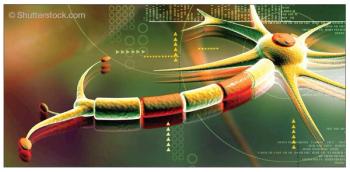
An instructive case that ties in to an APA presentation on "Treatment and Research of Treatment-Resistant Depression and Bipolar Disorder."

An instructive case that ties in to an APA presentation on "Treatment and Research of Treatment-Resistant Depression and Bipolar Disorder."

Selected for clinical implications, here are some highlights from the recent acceleration in understanding of the mechanisms of bipolar disorder.

The authors-both well-known specialists-attempt to integrate the two fundamental ingredients of psychotherapy and pharmacology in the treatment of bipolar disorders.

After thorough examination and history-taking, bipolar II disorder was suspected in a 19-year-old college student. What psychiatric screening tools might be used to further confirm the diagnosis for this patient?

There is very little evidence for the efficacy of antidepressants in bipolar disorder, particularly for longer-term use. However, there are at least 9 alternatives to conventional antidepressants.

If your practice or your advocacy efforts place you anywhere near people encountering the mental health system for the first time, please have a look at this book.

With DSM-5, one more examination of bipolar diagnosis is warranted. After all, if a diagnosis is inaccurate, treatment efforts, however well-intentioned, may misfire.

Overdiagnosis of bipolar disorder is an increasing concern, particularly since a widely cited study that indicates a problem with overdiagnosis as well as with the much less publicized parallel finding of 30% underdiagnosis.

This essay begins an ongoing series on bipolar disorder focused on clinical utility.

Patients with bipolar disorder need a great deal of information about the illness. Without this education, adherence to your recommendations is uncertain; with it, outcomes will likely be better (and your job easier).

This essay is a brief update on an earlier Psychiatric Times article by Dr James Phelps. Several major studies have appeared since the publication of the original article, which shed further light on this issue.

The contents of this volume are, as the cover emphasizes, “real stories from real people.” Clinicians who practice in a setting that allows time to really listen to patients have already heard these stories. These would be clinicians who have learned that listening to small details in a patient’s history helps one recognize patterns not described in the DSM.

Oregon’s legislature has passed the bill: should the governor sign it? Most opinions on this issue are strong, and many have reached the point of invective. Even such a cool mind as Ronald Pies' has weighed in with an emotionally charged editorial.1 To speak in favor when so many are opposed seems only to invite more affective discharge. On the other hand, editorial views thus far may be moving us toward extremes on an issue that is highly complex. Perhaps a dialectic approach -– what value can we find in an opposing view? -- would be wise at this point. In that spirit, here are 4 considerations that I hope will be useful.


When a new patient with depression enters your practice, you face a diagnostic dilemma. If you miss bipolar disorder (BD), and prescribe an antidepressant, you can do harm. But if you call a unipolar depression "bipolar," you may also do harm, because lithium, anticonvulsants, and atypical antipsychotics carry significant risk as both short- and long-term treatments. In addition, the label of "BD" currently carries much more stigma than the term "depression."

A look at how to use the spectrum concept to promote understanding and acceptance of bipolar II and soft bipolar diagnoses. In this article, you will find 5 tools for fostering what has been called “concordance” or, more simply, “buy-in.”

With expansion of the concept of bipolar disorder (BD), there has been concern about the potential for overdiagnosis. However, diagnostic errors in bipolar disorder are currently skewed towards underdiagnosis.